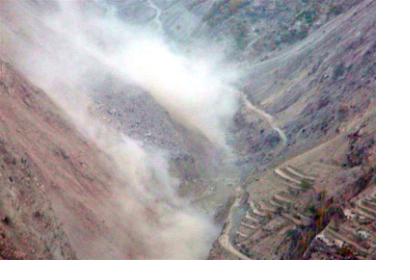As flash floods hit Pakistan in February and caused damage over a wide area which also killed 29 people in various area in Peshawar, ICIMOD, the International Centre for Integrated Mountain Development and host of a UN-SPIDER Regional Support Office, tries to help communities in understand and adapt to the impact of human development and climate change. ICIMOD also works together with the local authority, Province Disaster Management Authority in Khyber Pakhtunkhwa Province, to raise awareness within communities on minimizing damages.
Pakistan itself does not yet have a national strategy that specifically plans for dealing with flash flooding, but in late February the country's National Disaster Management Committee approved a new Disaster Risk Reduction policy to help the country build resilience to extreme climate events like floods, avalanches, and landslides. On other hand, community leaders also have taken part in workshops on how to help them reduce the damage floods cause and manage such disasters when they happen. One of many ways to identify the areas most at risk of flash floods is by using satellite imagery, where community leaders can work out on how to reduce risks and prepare for such emergencies.
Additionally, ICIMOD has published the study "Case Studies on Flash Flood Risk Management in the Himalayas : In support of specific flash flood policies" including eight case studies from Xichang and Niujuangou in Sichuan, China; Dhemaji District in Assam, India; the Bhote Koshi/Sun Koshi basin (two case studies), Lal Bakaiya, and Madi in Nepal; and Chitral District in Pakistan.

